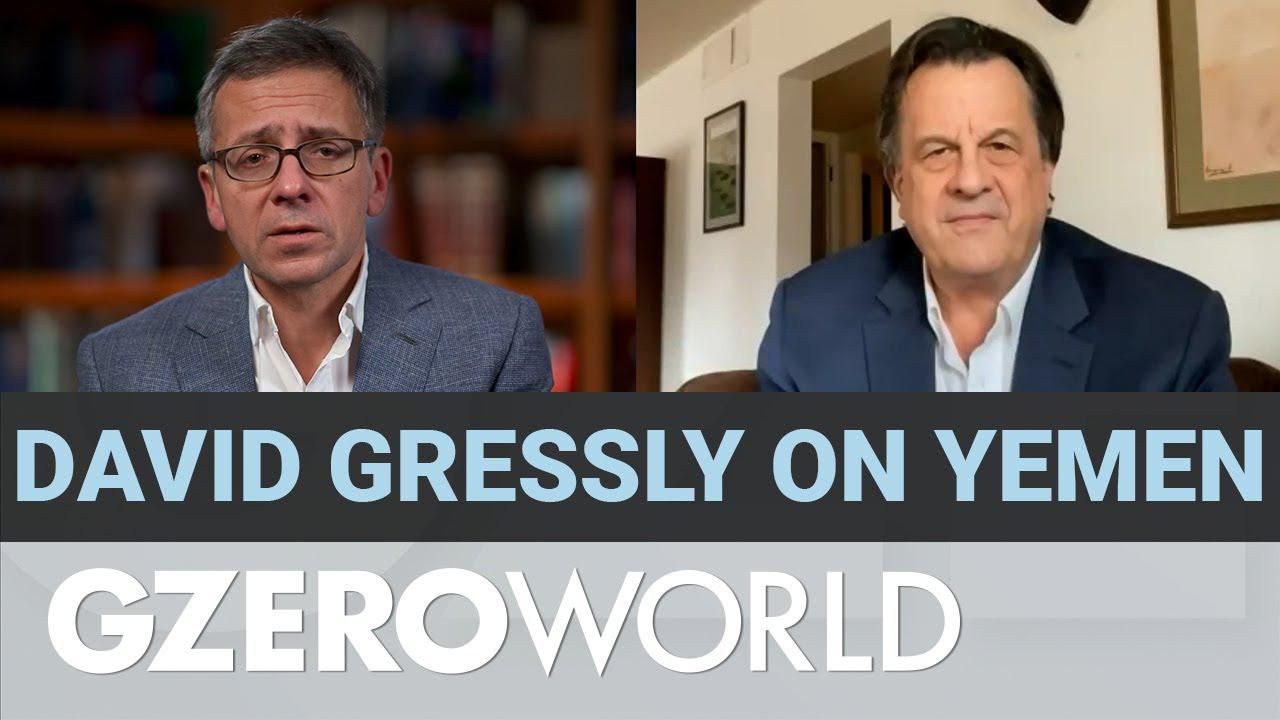GZERO World Clips
Inequity and conflict in Yemen: interview with UN's David Gressly

Inequity and Conflict in Yemen | UN's David Gressly | GZERO World

Why you should remember Yemen’s forgotten war In Yemen, the world’s biggest humanitarian crisis you’ve probably never heard of, 80 percent of people need international aid just to survive.
Two-thirds are hungry, and half don’t know where their next meal will come from.
Life is very hard in Yemen, UN Resident Coordinator David Gressly tells Ian Bremmer. Most infrastructure is destroyed, few can access clean water or health care, and many Yemenis are afraid to go outside because of landmines.
Meanwhile, 1.2 civil servants continue to show up to work, with little or no pay. If they stayed home, the state would cease to exist. The UN is asking for $3.6 billion simply to feed Yemenis and keep the lights on through 2022, but is now still short $1.6 billion. Gressly says that means many Yemenis will go hungry next year.
Regional powers Iran and Saudi Arabia have turned Yemen into a seven-year proxy war, with civilians paying the price. The country is divided between the Houthis, an Iran-backed Shia militant group, and the internationally recognized government with Saudi Arabia on its side.
It’s unlikely the conflict will end anytime soon. The Biden administration has delisted the Houthis as a terrorist organization and stopped selling weapons to the Saudis. Gressly thinks that’s a step in the right direction, but not enough.
Watch the episode of GZERO World on Yemen's forgotten war: https://www.gzeromedia.com/gzero-world-with-ian-bremmer/caught-in-the-crossfire-yemens-forgotten-war
When Japanese Prime Minister Sanae Takaichi called snap elections last month, it was a big gamble. Holding a winter election just four months into her tenure with no real policy record to run on?
Tune in on Saturday, February 14th at 12pm ET/6pm CET for the live premiere of our Global Stage from the 2026 Munich Security Conference, where our panel of experts takes aim at the latest global security challenges.
Microsoft unveiled a new set of commitments guiding its community‑first approach to AI infrastructure development. The strategy focuses on energy affordability, water efficiency, job creation, local investment, and AI‑driven skilling. As demand for digital infrastructure accelerates, the company is pushing a new model for responsible datacenter growth — one built on sustainability, economic mobility, and long‑term partnership with the communities that host it. The move signals how AI infrastructure is reshaping local economies and what people expect from the tech shaping their future. Read the full blog here.
The Israeli government unilaterally passed measures that allow Jewish settlers to purchase land in the West Bank, overriding past laws that effectively banned the sale of property there to anyone other than Palestinian residents.